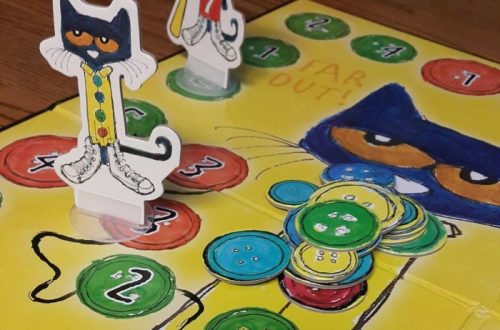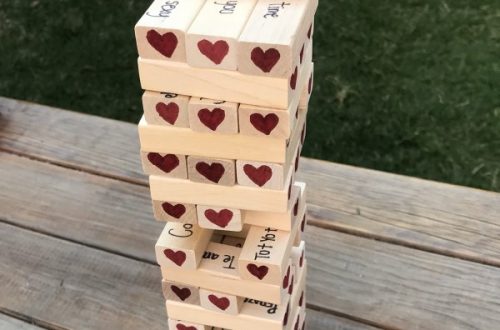The Benefits of Donating Puzzles
Where to donate puzzles? Donating puzzles can have a positive impact well beyond the simple act of giving. It’s a way to declutter your space and share joy with others. Here are key benefits that come with puzzle donations:

- Spreading Joy and Entertainment: Puzzles offer hours of fun. By donating, you pass that entertainment on to someone else.
- Supporting Educational Programs: Many puzzles are educational. They can help in teaching problem-solving and cognitive skills, especially to children.
- Assisting Senior Centers: Puzzles can provide mental stimulation for the elderly. They are a favorite in many senior centers.
- Promoting Sustainability: Donating puzzles is a form of recycling. You’re keeping them out of landfills and extending their life cycle.
- Supporting Charitable Causes: Some organizations sell donated puzzles to raise funds. This helps support their charitable work.
- Creating Community: Sharing puzzles can bring people together, creating a sense of community through shared interests.
The act of donating your puzzles can make a big difference in someone’s life. It’s about more than just clearing out your shelves – it’s about the joy and learning opportunities you provide. When considering where to donate puzzles, think about these benefits and how your contribution will continue to give long after you’ve parted with the puzzles.
Finding Local Donation Centers
When looking for where to donate puzzles, local donation centers are a great place to start. Here’s how you can find them:
- Search Online: Use search engines to find ‘puzzle donation near me’. Check websites and social media for details.
- Contact Local Charities: Many charities accept puzzle donations. Call them or visit their websites for information.
- Visit Thrift Stores: Thrift stores often welcome puzzle donations. Ensure they are in good condition.
- Check with Community Centers: Places like community centers or churches may have donation programs.
- Use Local Apps: Local marketplace apps may have options for donating items to nearby recipients.
When you identify a donation center, ask about their needs. Confirm if they accept puzzles, and note any guidelines they might have for donations. Remember, by choosing a local center, you’re helping your community and reducing the carbon footprint associated with shipping items. It’s a win-win for everyone involved – you declutter, someone gets to enjoy a new puzzle, and together, we create a sustainable cycle of generosity.
Puzzle Donation Programs and Charities
Local Nonprofits: Supporting Education and Family Services
Local nonprofits are excellent candidates for puzzle donations, particularly those focusing on education or family services. These organizations often lack resources for enrichment activities, making puzzles a valuable addition to their programs. For instance, after-school tutoring centers or daycare facilities may use puzzles to enhance cognitive development in children. Researching nearby nonprofits ensures your contribution aligns with community needs effectively.

National Charities: Widening Your Impact
National charities such as Goodwill or The Salvation Army operate donation centers that accept puzzles alongside other household items. Their extensive networks ensure puzzles reach individuals who need them, including families in underserved communities. Transitioning from local to national options widens the potential impact of your donation while maintaining convenience through established collection points. Always confirm current guidelines, as policies may vary by location.
Hospitals and Clinics: Helping Patients Recover
Hospitals, especially pediatric and rehabilitation centers, frequently welcome puzzle donations to aid patient recovery. Puzzles provide mental stimulation and relaxation for patients undergoing treatment or therapy. In senior care facilities, they also promote cognitive health among older adults. Before donating, verify whether the hospital has specific requirements regarding puzzle condition or type, ensuring suitability for intended recipients.
Schools: Enhancing Learning Experiences
Schools represent another impactful destination for puzzle donations. Teachers often incorporate puzzles into classroom activities or after-school programs to foster problem-solving skills and teamwork among students. Elementary schools, special education programs, or extracurricular clubs may benefit significantly from these contributions. Contacting school administrators beforehand ensures alignment with curriculum needs and avoids overstocking issues.
Public Libraries: Community Enrichment Through Games
Public libraries frequently host game nights, reading programs, or family events where puzzles play a central role. Donating to your local library supports community engagement and offers access to enriching activities for all age groups. Some libraries even maintain dedicated sections for puzzles and board games, extending their usability beyond single events. Confirming donation acceptance policies helps streamline the process efficiently.
Churches and Religious Organizations: Strengthening Community Bonds
Churches and religious organizations often run outreach programs aimed at supporting vulnerable populations, such as food banks or clothing drives. Extending this support to include puzzle donations enhances recreational offerings within these initiatives. Programs targeting children, seniors, or low-income families might appreciate puzzles for entertainment or educational purposes. Collaborating with these groups fosters stronger community ties while promoting inclusivity.
Specialized Charities: Tailored Support for Unique Groups
Specialized charities catering to specific demographics—such as children with disabilities, veterans, or homeless shelters—often feature tailored programs where puzzles can make a significant difference. For example, organizations focused on autism awareness use puzzles to encourage sensory development and patience. Similarly, veteran support groups incorporate puzzles into therapeutic sessions to assist with mental health recovery. Identifying specialized charities ensures your donation reaches individuals who will benefit most directly.
Contacting Organizations Before Donation
Reaching out to organizations before donating is crucial for maximizing effectiveness. Confirm whether they currently need puzzles and inquire about specific guidelines, such as cleanliness standards or piece completeness. This step prevents unnecessary trips or unsuitable contributions, ensuring your effort aligns with recipient expectations. Many charities provide detailed donation instructions online, simplifying the process further.

Promoting Joy and Cognitive Benefits Through Thoughtful Giving
By choosing thoughtful destinations for your puzzle donations, you not only declutter your home but also support important causes. Puzzles offer cognitive benefits, stress relief, and social interaction opportunities for recipients across various settings. Whether enhancing educational experiences or providing entertainment during recovery, each donated puzzle contributes positively to someone’s life. Encouraging others to participate in similar acts fosters a culture of giving back meaningfully.
Organizing Puzzle Donation Drives
Planning and executing a puzzle donation drive can greatly increase the number of puzzles collected and benefit a wider community. Here are simple steps to organize effective puzzle donation drives:
- Select a Beneficiary: Decide which charity, school, or local organization will receive the donated puzzles. This guides your efforts.
- Set Clear Goals: Determine how many puzzles you want to collect and by when. Having clear targets motivates contributors.
- Spread the Word: Use social media, flyers, and local community boards to advertise the drive. A catchy slogan can help.
- Partner with Businesses: Local businesses can act as drop-off points. This makes donating easier for people.
- Organize Collection Events: Schedule events in community centers or parks where people can bring puzzles.
- Provide Guidelines: Make sure donors know what kind of puzzles you’re looking for and the condition they should be in.
- Update Contributors: Share progress with those involved. It keeps the momentum going and encourages more donations.
By organizing a puzzle donation drive, you not only gather more puzzles but also foster community spirit and raise awareness about the importance of giving. Ensure the drive is accessible, well-advertised, and supported by the community, so that everyone knows where to donate puzzles. When the drive concludes, celebrate the success with your team and contributors, providing a sense of accomplishment and hopefully inspiring future charitable efforts.
Donating Puzzles to Schools and Libraries
When contemplating where to donate puzzles, schools and libraries should be at the top of your list. These institutions often use puzzles for educational activities, making them ideal recipients of your donations. Here’s how to go about it:
- Check with Schools: Reach out to local schools, from kindergartens to high schools. Teachers can use puzzles in lessons or for free time activities.
- Library Programs: Many public libraries have programs for children which can benefit from puzzles. They might also use them for community events.
- Special Education Needs: Schools with special education programs may find puzzles especially helpful for developing fine motor skills and problem-solving abilities.
- Donation Guidelines: Ask about the school or library’s donation process. They may have certain sizes or types of puzzles they prefer.
- Donation Times: Some institutions may only accept donations at specific times of the year. It’s best to confirm this beforehand.
By donating puzzles to schools and libraries, you help in two ways. First, you support learning and development. Second, you provide essential resources that might not otherwise be in their budgets. Always remember to give puzzles that are complete and in good condition. It’s about giving a gift that can educate and entertain for years to come.

Recycling and Upcycling Old Puzzles
Not all puzzles remain in a state fit for donation. If you find yourself with puzzles that are damaged or incomplete, recycling and upcycling offer smart, eco-friendly alternatives. Here are ways you can give new life to old puzzles:
- Art Projects: Transform puzzle pieces into creative art. Make wall decor, ornaments, or even jewelry.
- Educational Tools: Use pieces as part of teaching materials for crafts or counting activities in classrooms.
- Home Decor: Craft unique home decorations like photo frames or coasters from old puzzle pieces.
- Community Art: Engage with local community centers to create a community mosaic or art installation.
- Garden Markers: Upcycle the pieces into cute, creative garden markers for your home garden.
- Gift Tags: Decorate gift packages with puzzle pieces for a personal touch.
Remember, the goal is not only to get rid of something but also to benefit others and the environment. When recycling, check if your local recycling center accepts puzzles. Some may have specific procedures for recycling paper or cardboard. Old puzzles hold potential for new purposes, promoting both creativity and sustainability. So, before you toss, think of where to donate puzzles or how you can creatively repurpose them!
Online Platforms for Puzzle Donation
In the digital age, knowing where to donate puzzles can be made simple through online platforms. These websites and services not only connect you to those in need but also simplify the donation process. Here are some practical ways to donate puzzles using online resources:
- Use Social Media: Platforms such as Facebook, Instagram, and Twitter are powerful tools for spreading the word about your puzzle donations. You can join groups or use hashtags to reach potential recipients.
- Online Marketplaces: Websites like eBay, Craigslist, and Freecycle allow you to list puzzles for free pickup. This is also a great way to ensure your puzzles go directly to someone who wants them.
- Specialized Donation Websites: Some websites are dedicated to matching donations with organizations or individuals. These platforms can guide you on how and where to donate puzzles responsibly.
- Nonprofit Wish Lists: Many charities have online wish lists where they specify the items they need. Check if puzzles are listed and follow instructions for donations.
- Virtual Bulletin Boards: Look for community bulletin boards online. These can be local forums or apps that have sections for donations and exchanges.
Remember to check the condition and completeness of your puzzles before listing them. Online platforms can reach a wide audience fast, making it an efficient way to donate. Always follow safe trading practices when meeting up for donations. In summary, these online options offer convenience and reach, helping you make your puzzle donations count.

Tips for Donating Puzzles Responsibly
When deciding where to donate puzzles, doing so responsibly ensures they benefit the intended recipients. Here are tips to follow:
- Check Puzzle Completeness: Before donating, make sure all pieces are there. Missing pieces can frustrate new owners.
- Cleanliness is Critical: Clean the puzzles gently. Nobody appreciates dirty or sticky puzzles.
- Box Integrity: Ensure the puzzle’s box is sturdy. Broken boxes make transport and storage hard.
- Follow Guidelines: Respect the donation guidelines of the chosen charity or center. They know best what they can use.
- Spread Donations Out: Don’t overload one place with too many puzzles. Spread them across multiple charities if possible.
- Age-Appropriate Content: Consider the puzzle’s themes. Ensure they’re suitable for the receiving group, like children or seniors.
- Receipts for Donations: If donating for a tax deduction, ask for a receipt. Keep records for your taxes.
- Sustain Relationships: Stay in touch with the donation center. It helps to know they still need puzzles.
Taking these steps when deciding where to donate puzzles will be much appreciated by those on the receiving end and will help in keeping the spirit of sharing and sustainability alive.




